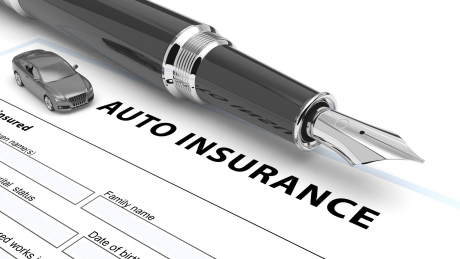Life is unpredictable so we never know when our house or car will be in danger and we will be forced to cover the costs of damage caused by some other people or natural disasters. If we want to avoid it, we should think of buying property insurance which provides property protection coverage or liability coverage against most risks to property, such as theft, fire, earthquake, or weather damage.

The Function of Property Insurance
Property insurance guarantees financial reimbursement to the owner or renter of the property if a property is stolen, destroyed, or damaged. It adheres to a principle called indemnification which states that the insurance aims to compensate the loss to the policyholder to more or less the same state as before the damage occurred. The principle of indemnification certifies it is forbidden for a policyholder to profit from filing a property insurance claim.
There are specialized forms of property insurance such as home insurance, fire insurance, boiler insurance, flood insurance, or earthquake insurance. The cost of property insurance is designed according to the number of risks covered and the appraised value of the property. The set term of policies is renewable - it usually covers one year.
Back to topTypes of Insurance Coverage
Property insurance has two specific types of insurance coverage: open perils and named perils. Coverage is provided on an open perils basis or a named perils basis. Open perils coverage includes all losses, also resulting from any fortuitous events such as floods, terrorism, earthquakes, war, and nuclear incidents except those that are precisely excluded. It means that our property insurance covers us for any fortuitous event that happens to our property if it isn’t explicitly excluded from our policy. So in case of damage done to your office equipment by flood, your policy doesn’t explicitly say “flood isn’t covered”, your claim will be approved by default. Unlike open perils coverage, named perils coverage applies only to losses following causes that are listed in your policy as covered. They include such events as theft, fire, lightning, and explosion. Named perils are mostly more restrictive.
Back to topTypes of Property Insurance
The most common types of property insurance are home insurance, auto insurance, and business insurance. Other common types of property insurance include motorcycle insurance, boat insurance, or snowmobile insurance. Property insurance can be also provided for unusual items that are not included in the home, auto, or commercial policies, - or items whose value puts them out of the underwriting capabilities of regular insurance companies. This type of insurance product is called personal lines.
Property insurance includes:
Back to topTypes of Perils
You can ensure your property against three particular sets of perils called coverage forms: Basic Form, Broad Form, and Special Form Coverage. They are progressively more expensive in terms of premiums, but you are protected against more types of losses.
1. A basic form policy covers your property against fire, theft, smoke, lightning, windstorm, explosion, hail, riot, civil commotion, vandalism, aircraft, vehicles, sprinkler leakage, volcanic action, sinkhole collapse
2. A broad form policy covers your property against all perils mentioned in a basic form policy, but it also includes damage from a broken window, falling objects, or water damage (leakage from appliances), collapse from specified causes, damage from sudden electrical currents, or freezing of plumbing.
3. Special form coverage protects you for everything or all risks except what was specifically excluded from coverage. Typical exclusions are nuclear hazards, war, earthquakes, floods. You can always buy a flood or earthquake policy.
In most states, when insurers refer to a comprehensive general liability insurance policy, they relate to a broad form policy that is used to suit specific needs because it provides a wide scope of coverage.
Auto insurers offer broad form policy options to businesses to provide coverage for executives, employees, or any other person who receives a company vehicle but is not covered under a personal auto policy because of lack of a personal vehicle.
Back to topFeatures of Property Insurance
To receive maximum protection, policyholders usually combine property insurance with casualty or liability insurance. Property insurance provides compensation to policyholders for damage or loss of physical items, whereas casualty and liability insurance cover costs such as medical and hospital bills, lost wages, or legal fees, incurred by a policyholder. To acquire property insurance, it is necessary to have an insurable interest in the property in question. Insurance companies do not sell property insurance when a person has no insurable interest in a house because it would instantly be in that person's interest to cause a loss.
Coverage and Exclusions
The scope of coverage is the most significant element of each insurance policy, so before buying property insurance we should check thoroughly what our insurance policy covers. It is almost impossible to find an insurance policy that covers all possible losses. Typical exclusions include losses caused by earthquakes, war, floods, and nuclear accidents. Each policy can outline some more specific exclusions, which depend on the type of purchased policy and state law. To be fully protected, it is possible to buy a separate earthquake or flood insurance policy or use the federal flood insurance program which provides coverage for property damage arising from earthquake or flood. In some states, insurance law requires property insurance for floods and earthquakes on all businesses and homes.
The perils that are customarily not covered are:
- Flood damage (It usually needs a separate policy.)
- Earthquake damage (It usually needs a separate policy.)
- Maintenance damage (e.g. roofing, worn-out plumbing, heating units, electrical wiring, air conditioners, or pest infestation)
- Mold
- Sewer backup
Standard practice is including in insurance coverage just damage which is sudden and accidental. What it means that damage which was caused over many years such as roof caves resulting from old age, but not storm damage is excluded.
Insurance policies normally cover damage resulting from:
- Fire
- Smoke
- Lightning
- Theft
- Windstorm
- Hail
- Damage caused by aircraft or vehicles
- Vandalism
- Malicious mischief
- Volcanic eruption
- Explosion
- Riot or civil commotion
What are Premiums Dependent on?
The price of premiums are influenced by two main drivers:
- The number of causes of loss or perils.
The more causes of loss you include in your policy, the more expensive your policy will be.
- The amount of indemnity you expect to recover.
The higher compensation you expect to receive after an insurance claim, the more expensive premiums you will need to pay.
There are some more factors that influence how insurance companies calculate the price of the insurance premiums such as your age, area in which you live, or even pets you have. If you live in an area prone to tornadoes, hurricanes, or floods, your premiums will be more expensive. Having a large dog, a swimming pool, or being a smoker can put you in a higher risk group what can lead to more pricey premiums. Even your credit score matters.
When an insurance company classifies you as a higher-than-normal risk group, they charge you more. The higher risks are applicable to you, the higher price of premiums you will pay.
Back to topHow to Establish the Value of Insured Property?
There are two fundamental valuation methods for establishing the value of the insured property: Replacement Cost and Actual Cash Value. The Replacement Cost refers to the cost which is incurred to replace the damaged property with materials of the same quality and kind, with no deduction for depreciation. In other words, you are allowed to rebuild your house to the same standard before the damage occurred.
The Actual Cash Value method is about replacement cost minus depreciation. Your payment depends on the age of the building. There are three ways to calculate the ACV. To determine the actual cash value we deduct depreciation from the cost to replace or repair the damaged property, or determine its fair market value, or use the broad evidence rule which requires considering all relevant evidence of the damaged property value.
This ACV calculation method makes it difficult to restore the property to the previous condition without extra funds. If you do not have cash resources to cover the gap between insurance compensation and the actual cost to rebuild the property, it would be beneficial to buy a Special Form Coverage policy with Replacement Cost valuation.
Back to topWho Needs Property Insurance?
Most times, everyone who possesses expensive property such as a house, car, or jewelry is forced by law or a mortgage contract to carry property insurance. For example, when you have a car, you are required to have auto insurance in the form of liability insurance in all U.S. states.
If you at fault for the accident, liability car insurance covers the costs of the property damage such as car repairs or medical bills for the other driver and passengers up to the covered limit. You can also purchase comprehensive insurance and collision insurance concerning auto insurance, which can cushion you against troubles in case your car is damaged in an accident.
Property insurance can save you unnecessary problems resulting from unexpected events, but only when our insurance policy is well-prepared and adjusted to our needs.
Back to top





Comments